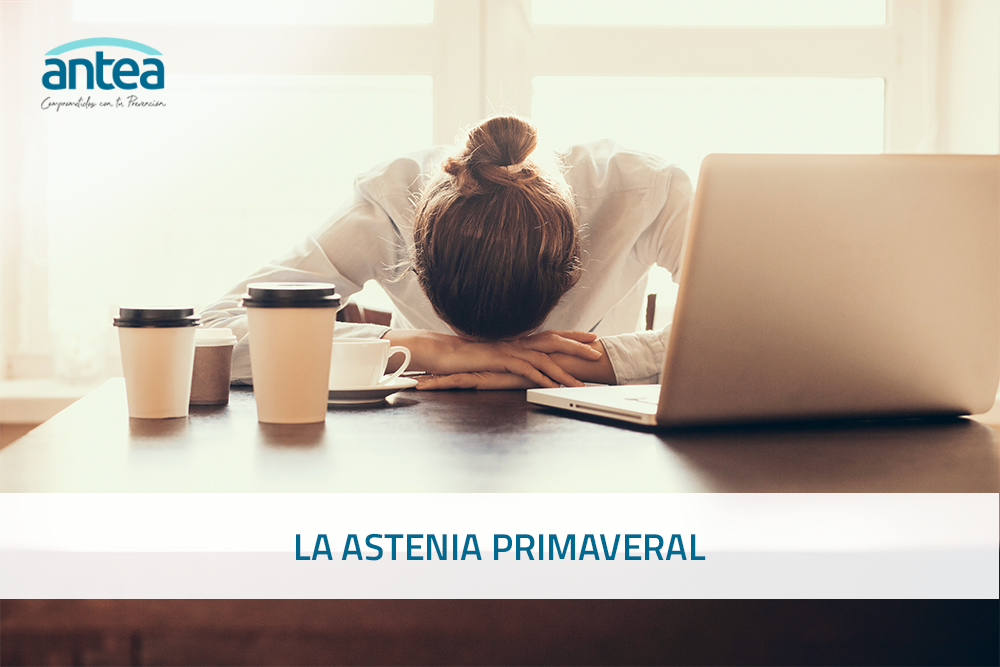3/05/21
Asthenia is a clinical term meaning "tiredness". We can define asthenia as a feeling of generalized fatigue and weakness with very diverse symptoms: disruption of the general state, intellectual fatigue with difficulty concentration and disorders of memory, sleep and appetite disturbances.
2% of the population can suffer from asthenia coinciding with the passage from winter to spring. It is not a disease, but a symptom that can be due to organic or psychological diseases, but also to other causes such as stress or overwork.
It occurs especially between the age of 20 and 50, and has a higher prevalence among women than among males.
This undefied clinical picture to justify it, and coinciding with the seasonal change already mentioned, is commonly known as spring asthenia.
Spring Asthenia
Experts do not value spring asthenia as a clinical picture. Psychiatrists say that cases where this feeling of fatigue or loss of energy does appear at this time may have to do with subclinical somatic type pictures that are not easily diagnosed, but this is not a psychiatric disorder, but a symptom more in the framework of other diseases that may have a seasonal character. What are the symptoms of spring asthenia?
- Unexplained tiredness, muscle weakness, lack of energy.
- Problems of concentration and difficulty in performing the usual daily activities.
- Lack of appetite.
- Sleep disorders, difficulty sleeping or having a restful rest, which in turn causes daytime sleepiness and increased fatigue.
- Irritability, nervousness, mood swings.
- Headaches more frequent or severe than usual.
- Apathy, unwarranted sadness, demotion, decreased sexual desire.
Why does it occur?
The origin of everything is in the hypothalamus, a gland located in the brain responsible for regulating, among other things, temperature, thirst, appetite, sleep and wakefulness, and that secretes hormones and neurotransmitters such as phenylethylamines, which are a kind of "amphetamines" responsible for causing euphoria; beta-endorphins, responsible for vital optimism, and Serotonins or happiness hormones.
It appears to be due to a combination of two factors:
- Hours of sunlight
- Hormonal cycles
How to prevent it?
A very important element in the prevention of spring asthenia is to be aware of its existence. Knowing that it is normal to feel tired when spring comes will help us to give it the right importance and act accordingly.
In general, to prevent or combat spring asthenia we will focus on three major areas of our lives:
- the diet, rich in vitamins and minerals: it helps your immune system by following a healthy and balanced diet, rich in green leafy vegetables, fruits, legumes and whole grains.
- rest.Maintain good sleep hygiene: lie down a little earlier at this time and try to sleep 7-8 hours.
- physical activity. Don't let yourself be overcome by apathy and try to exercise moderately every day. Staying active is the best antidote to tiredness and decay.
- Natural aids. Taking royal jelly, ginseng, pollen, wheat germ or brewer's yeast, natural substances of revitalizing properties, can be of great help.
- But before taking any supplement, consult with a specialist, as it may be contraindicated in case of certain diseases or interact with other medications.
Therefore, if in early spring you are more tired than usual, and lack the strength to perform daily activities, are sad or feeling tired, you are likely to be suffering from a spring asthenia.
However, if your feeling of tiredness or sadness persists over time, you should see your doctor, because it could be another underlying problem.

